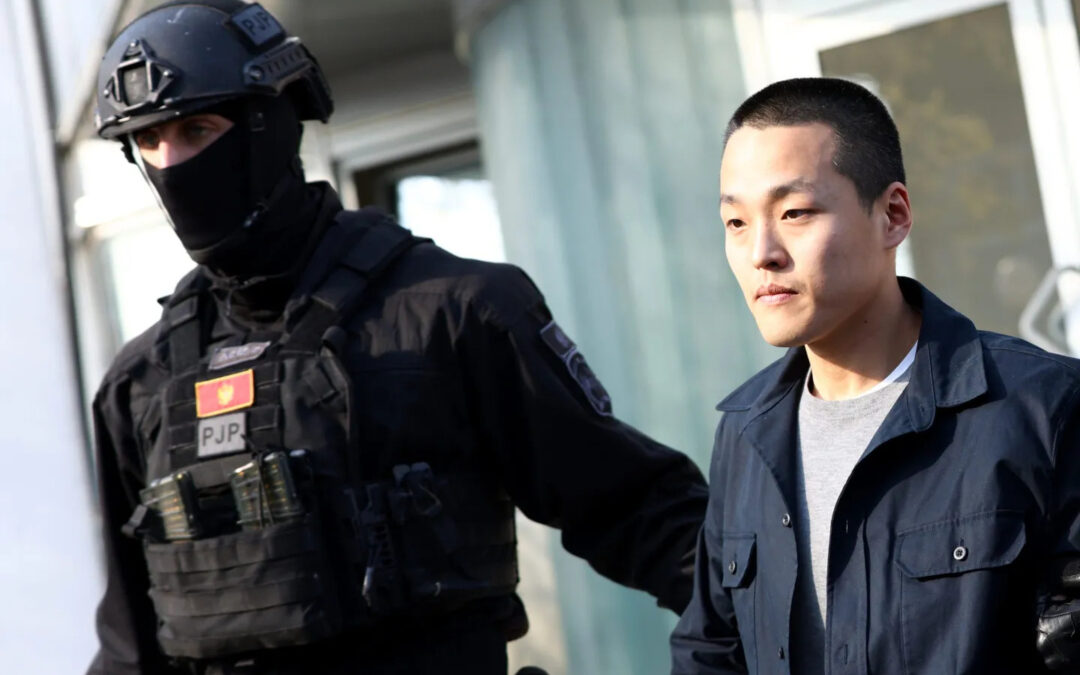Synopsis– Terraform Labs founder Do Kwon has pleaded guilty to conspiracy and wire fraud charges in the $60 billion Terra/Luna collapse, admitting he knowingly deceived investors about the stability of his algorithmic stablecoin.
Terraform Labs founder Do Kwon has admitted guilt in one of crypto’s most dramatic collapses. In a Manhattan courtroom, the 33-year-old South Korean pleaded guilty to conspiracy to commit fraud and wire fraud charges tied to the disastrous fall of his $60 billion Terra/Luna cryptocurrency empire. Kwon, wearing a canary-yellow prison jumpsuit and shackles, told the court he “knowingly” deceived investors who bought TerraUSD, the algorithmic stablecoin he once championed. Judge Paul Engelmayer carefully went over the charges before accepting the plea.
The deal with the Department of Justice could see prosecutors recommend no more than 12 years in prison. But the judge made it clear he isn’t bound by that number and could choose a harsher punishment. Kwon also agreed to forfeit up to $19.3 million plus interest, give up a set of valuable properties, and pay restitution to victims. This plea only resolves two out of the nine criminal counts he originally faced, a far lighter load than the potential 135-year sentence if convicted on all charges.
What the Sentence Could Look Like
Under the plea agreement, Kwon now faces a maximum of 25 years in prison: 20 for wire fraud and five for fraud conspiracy. The judge will decide whether those terms run back-to-back or at the same time.
Prosecutors will ask for a sentence capped at 12 years. Still, Judge Engelmayer stressed that he retains full authority at sentencing. The hearing is scheduled for December 11 in New York. By then, Kwon will have been in U.S. custody for almost a year following his extradition from Montenegro. Once Kwon serves half of his sentence, prosecutors have agreed to support a request for an international prisoner transfer. That doesn’t guarantee approval, but it could open the door for him to serve part of his term in another country, possibly South Korea, where he still faces separate charges.
Kwon’s Own Words in Court
In a statement read aloud in court, Kwon admitted that between 2018 and 2022 he worked with others to defraud TerraUSD buyers in South Korea, the United States, and elsewhere. He acknowledged using cross-border wire transfers as part of the scheme.
Most damaging was his admission that in 2021, when TerraUSD lost its dollar peg, he lied to the public about how it recovered. He claimed a computer algorithm maintained the peg when, in fact, a trading firm secretly bought large amounts of TerraUSD to shore up its price.
“What I did was wrong and I want to apologise for my conduct,” he told the court. At Terra’s peak, Kwon mocked critics and confidently defended UST’s stability. In one 2021 exchange on X (formerly Twitter), he taunted a skeptic with the now-infamous line, “Have fun staying poor.” That swagger is gone, replaced with what appeared to be a measured confession.
Fallout Beyond the U.S.
While the guilty plea is a turning point, it doesn’t close the book on Kwon’s legal troubles. His lawyer confirmed there are ongoing criminal proceedings in South Korea.
Kwon’s fall from grace has been swift. Two years ago, Terraform’s collapse wiped tens of billions of dollars from crypto markets, triggering wider sell-offs and shaking investor confidence in stablecoins. The U.S. Securities and Exchange Commission already won a civil fraud case against him earlier this year. Kwon spent months evading capture before being arrested in Montenegro in 2023. He was extradited to the United States at New Year’s and has remained in custody since. Only a small number of observers mostly reporters, witnessed Tuesday’s hearing.
Judge Engelmayer took time to confirm that Kwon had fully read the plea agreement, discussed it with his lawyers, and understood the consequences. The admissions are now part of the public record, detailing a deliberate and sustained effort to mislead investors. The December sentencing will reveal whether remorse and cooperation help reduce his time behind bars or whether the damage he caused will weigh heavily enough for a much longer term. Either way, the case has become one of the most significant reckonings in crypto’s turbulent history.
Written By Fazal Ul Vahab C H





